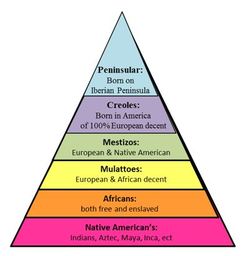History-Nationalism and Revolutions (Haitian Revolution, Spanish and South America, Revolutions in Latin America, German Unification, and Italian Unification
1/38
Earn XP
Description and Tags
Chapters 8 and 10
Name | Mastery | Learn | Test | Matching | Spaced |
|---|
No study sessions yet.
39 Terms
Ideology
a belief that forms from the basis of a political, economic, or other system
Conservatism
people that do not believe in change and want things to stay the way they are
Liberalism
people that believe in more freedom and change
Nationalism
a group of people who share a common history or culture
Universal manhood suffrage
giving all adult men the right to vote
autonomy
having self control in a government
Saint Domingue
French colony, had slave labor plantations (sugar), where the first slave revolt took place
Toussaint L’Ouverture
Led the slave rebellion that turned into a revolutionary war
Haitian Independence (1804)
second free country in the western hemisphere, first free black nation, inspired others to rebel for freedom
Peninsulares
FIRST ON SOCIAL HIERARCHY LEVEL, people born in Spain who dominated political and social life
Creoles
SECOND ON SOCIAL HIERARCHY LEVEL, European-descended Latin Americans who owned ranches and mines, led revolts for independence
Mesitzos
THIRD ON SOCIAL HIERARCHY LEVEL (same level as Mulattos), people of Native American and European descent
Mulattoes
THIRD ON SOCIAL HIERARCHY LEVEL (same level as Mestizos) people of African and European descent
El Grito de Dolores
a painting that shows the events of a revolt against Spain led by Father Hidalgo
Simon Bolivar
an educated creole who led an uprising that established a republic in Venezuela
Jose de San Martin
Helped Argentina win freedom from Spain, a gifted general
Dom Pedro
became the emperor of independent Brazil after his father
What were the goals of the Conservatives?
peace and stability
What were the goals for the Liberals?
give people rights
What were the goals of the Nationalists?
Autonomy (self-rule)
Prussia
the first of the German states, ruled by different dynasties
chancellor
prime minister
Otto Von Bismarck
served as a Prussian diplomat, named chancellor, united German states under Prussian rule, built up military, and won several wars
“Blood + iron”
policy used by Bismarck to build up his army, blood is war and iron is machinery or industrialization
Franco-Prussian War
Bismarck provoked Napoleon into waging war between Prussia and France, Prussia won over France, France surrendering due to their lack of prepardness
Kaiser
meaning emperor or king
Reich
meaning empire
Brazil Independence
Portuguese royal family flee to Brazil, then returned to Portugal, King’s son declares independence and becomes the emperor, gained independence from Portugal
Revolutions in Latin America were gaining independence from who?
Spain and Portugal
Causes of the revolutions:
1) enlightenment ideas
2) American and French revolutions
3) Napoleon Bonaparte
4) Nationalism (need for autonomy)
Spanish South America had a social ___ based on __
hierarchy, race (ethnicity)

how did Germany become a country?
prussia’s victory in the franco-prussian war
Young Italy
a secret society led by Giuseppe Mazzini who wanted independence
Camillo Cavour
prime minister of Italy, took land from France
Giuseppe Garibaldi
a nationalist who fought for unity and overthrew the kingdom of Naples
Red Shirts
volunteer army led by Garibaldi
anarchist/anarchy
people who want to abolish government
emigration
to leave a certain area
problems Italy faced after unification
crime, North was wealthier than the South, emigrations, extreme political parties